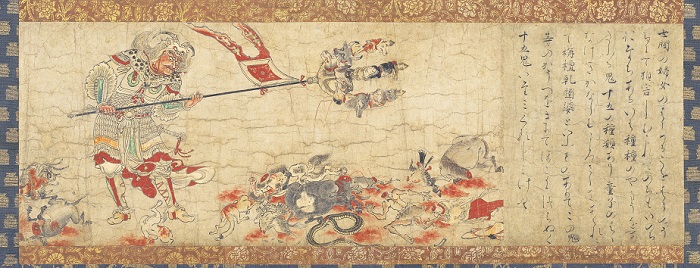 A close friend you cherish, a relative, your partner—someone you love and care about—wins the award, gets the job or the raise you thought was in your pocket; charms the socks off the guy you’ve adored from afar, sails for a month-long vacation—attains exactly the goodies you’ve secretly coveted.
A close friend you cherish, a relative, your partner—someone you love and care about—wins the award, gets the job or the raise you thought was in your pocket; charms the socks off the guy you’ve adored from afar, sails for a month-long vacation—attains exactly the goodies you’ve secretly coveted.
Because you do care about the lucky person, you share in the happiness of their good fortune. Well, mostly. Your smiley face congratulations is hearty enough, but isn’t it sometimes tainted by a tightening in your gut, a cold gust sweeping your heart?
If you’re like me, you’re horrified and ashamed that your joy for the other isn’t unconditional, but what a relief to realize envy is part of human nature across continents and down the eons. What child hasn’t made loathsome comparisons between self and other, smoldered with envy, felt envy gulp down their confidence? What child hasn’t suffered the humiliating experience of feeling less than, having less than, wanting more? Who of us hasn’t worried we’re flawed or sinful (see the Bible for brutal stories of envious sibling rivalry), felt cheated when the goodies were doled out?
Most of us identify with the innocent, blameless characters in stories. I am not—the evil stepsister, the vengeful queen, the brother who rats on his brother and steals his inheritance—those archetypal figures we know so well as moral disasters. Aren’t we more inclined to identify with the all-good, too-good Cinderella, express sympathy for the pure and virtuous Snow White? It’s true that today’s heroines have become sassier, edgier, more complicated, but still their strength and fury, like those of their male counterparts, are usually directed toward admirably heroic undertakings.
Frans de Waal narrates a video of his experiment in which two capuchin monkeys are paid unequally.
But whether we admit it or not, we all experience envy. “There is not a passion so strongly rooted in the human heart as envy,” wrote the Irish playwright Richard Brinsley Sheridan. Ain’t it the truth! But it’s just so dang painful to admit that cruelty and betrayal lurk within. I would never have the courage to look at envy so directly, let alone write about it, if I had not come to recognize its universal nature and to understand that denying envy only reinforces its snarky, trickster, debilitating aspects.
Even if we ignore them, the disliked, disowned envious parts of ourselves don’t go away, they simply get projected onto the Other, often in the form of blame. So, along with the personal suffering envy causes, it might well be responsible for most wars and murders on the planet.
 A new realm of Envy Hell opened up to me after I became a published writer. Google “Writer’s Envy” and a whole host of links appear. This is no surprise since we artists have our eye on immortality, and fame is a very small ship onto which many hope to sail. I do find it ironic that while envy is the engine that drives many works of literature—think Agamemnon taking Briseis from Achilles and Achilles sulking in his tent for three years; Iago envying Othello or Edmund Edgar in King Lear; or Amy March’s envy of Jo in Little Women. Authors are forever weaving plots around envy; we are mighty resistant to ‘fessing up about our own.
A new realm of Envy Hell opened up to me after I became a published writer. Google “Writer’s Envy” and a whole host of links appear. This is no surprise since we artists have our eye on immortality, and fame is a very small ship onto which many hope to sail. I do find it ironic that while envy is the engine that drives many works of literature—think Agamemnon taking Briseis from Achilles and Achilles sulking in his tent for three years; Iago envying Othello or Edmund Edgar in King Lear; or Amy March’s envy of Jo in Little Women. Authors are forever weaving plots around envy; we are mighty resistant to ‘fessing up about our own.
As a commercially published writer, I have certainly felt both the discomfort of being envied and the equally painful experience of being the envier. To be the envied one causes its own set of difficulties. By definition, the envied receives the projected anger and resentment of the envier whose attacks maybe come across as confusingly passive aggressiveness or as blatant sabotage. Envy is a master at wearing costumes: the gratuitous smile, the devious offers to help. The storybook witches of our childhood abide in our adult imagination. Can’t we still feel the uncanny thrill, the fear and delicious trepidation of being invited by a kindly old lady into the gingerbread house? Envy seems to put us to a test: first we need to recognize and acknowledge its existence, then we are asked to decide how to be in relationship to it. (Run away; hide our face; attack with a weapon; cajole; outwit; succumb; reform. The possibilities are many.)
 Myths and fairy tales tell us the gods can be jealous, even ruinous. These stories work well as cautionary tales to warn us not only of the gods that strike from above, but depict representations of the archetypal forces in the human psyche and ask us to consider how envy motivates us from within. For her hubris at claiming to be a better weaver than Athena, Arachne is turned into a spider. We know what happened to Icarus when he, attempting to fly like the gods, flew too near to the sun.
Myths and fairy tales tell us the gods can be jealous, even ruinous. These stories work well as cautionary tales to warn us not only of the gods that strike from above, but depict representations of the archetypal forces in the human psyche and ask us to consider how envy motivates us from within. For her hubris at claiming to be a better weaver than Athena, Arachne is turned into a spider. We know what happened to Icarus when he, attempting to fly like the gods, flew too near to the sun.
Three thousand years ago, the Buddha recognized envy as one of the root causes of suffering and suggested to his students that they develop genuine happiness for the success of others—mudita in Pali—one of the four brahma-viharas, practices that cultivate our highest human virtues. Mudita or vicarious joy encourages us to develop the opposite of a scarcity mentality that supposes there is only so much happiness to go around. Scarcity mentality is in part responsible for envy since the envier feels the other’s good fortune diminishes the possibility of her own.
May I be happy
May you be happy
May we be at peace
These are simple, elegant phrases I use when I become conscious of envy’s presence. Practicing these cleansing loving-kindness phrases has a quality of restorative justice, whereby I remember that envy, being a universal trait, is yet one more oddball way I am connected to the human race.
Other remedies?
- Laugh at oneself! Just plain sit down in a chair and think of the absurdity of assuming life is fair. Fairness was conceived by mankind. The nature of Nature is something altogether other.
- Recognize envy is universal condition. You are not being singled out. Every wisdom tradition includes instructions about envy. Educate yourself.
- Especially if you are a writer dealing with writer’s envy. It soothes the soul to read writers you love.
- Devise a ritual or ceremony to deal with envy. Invest a stone with your uncomfortable feelings and bury it. Light a candle and recite a wish. Draw a picture of envy or the feelings it arises, then burn the drawing and scatter the ashes. Using your creative energies in this way ignites and inspires the good muses to hang around.
- Talk to a trusted friend about envy. Find out you are not alone.
